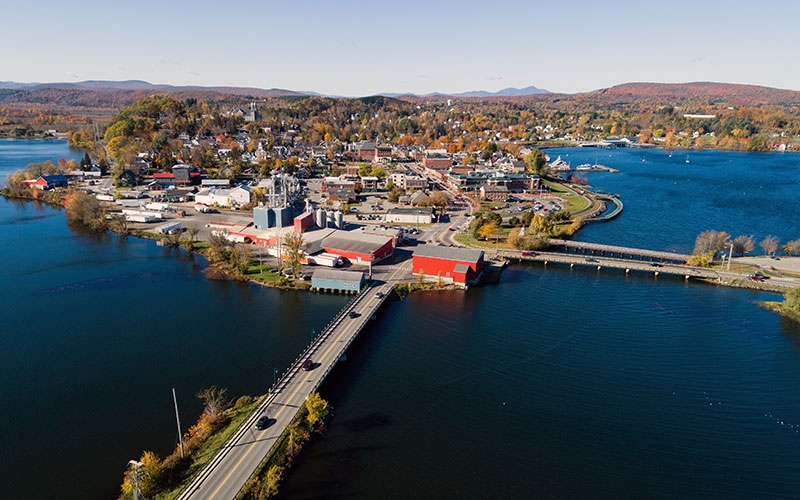
Lake Memphremagog. Photo: NEKTV via Shutterstock
September 21, 2021 (MONTPELIER, VT) – After toxic chemicals were discovered in Lake Memphremagog, Casella Waste will no longer be able to utilize a wastewater treatment plant that discharged leachate from the company’s landfills into the lake, according to a draft permit issued by state officials. Conservation Law Foundation (CLF) released the following statement in response.
“Toxic garbage water has no place in Lake Memphremagog or any of Vermont’s waters,” said CLF attorney Peter Blair. “Landfill leachate contains a toxic soup of chemicals, including PFAS, which cause serious health issues in humans and animals. Waste companies need to take responsibility for the damage they’re causing to our waters, and this new permit is a huge step towards making that happen in Vermont.”
‘Leachate’ is the term for the liquid pollution that seeps through a landfill’s waste pile when it rains or snows. The Coventry landfill generates roughly 9.5 million gallons of this garbage water each year, and it contains all sorts of harmful chemicals, including Per- and Poly-fluoroalkyl Substances (PFAS). PFAS are suspected carcinogens and have been linked to a variety of severe health problems.
Casella previously used the Newport Wastewater Treatment Facility to process its leachate before it was discharged into Lake Memphremagog, which may have contributed to PFAS being found in the lake. The draft permit requires the company to use only the Montpelier Wastewater Treatment Facility moving forward. It will also require Casella to create and implement a pilot program to study technologies that treat and remove PFAS from its leachate.
The Agency of Natural Resources is accepting public comment on the draft permit until November 8, 2021.
CLF experts are available for further comment.
###
